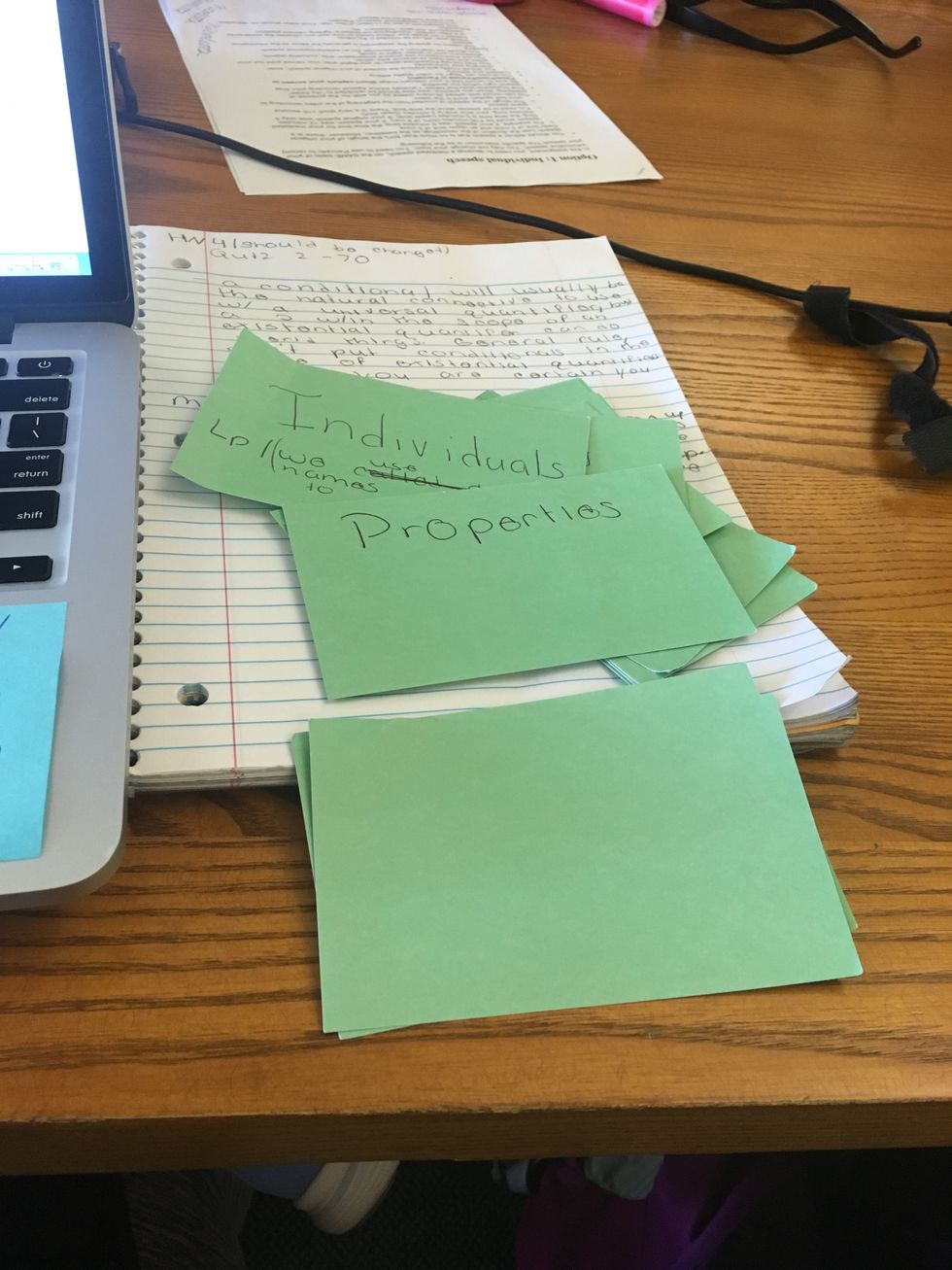In college, you are transitioning into a new environment socially, but more eminently, academically. And unlike high school, you have a lot of free time and have to choose wisely what to do with your time. It's really difficult to prioritize your time and study. In fact, it's harder to find a study routine that works for you, depending on the classes your taking and your life. So here are five universal study tips I find that can be applied to any field of study and might make your life easier with finals coming up.
1. Use flashcards
Flash cards are amazing and are a great way to study. They are a quick and easy way to get information down in a concise way. Plus, if you have a page full of notes and make flashcards, it forces you to break down your notes into a short and easy way for you to remember. Flash cards are also travel-friendly and you can look at them whenever you have a couple minutes to spare. Plus, you can get color-coded flashcards to separate and organize your subjects.
2. Use pen and paper
Whether you're in a lecture hall or in a class where the professor rushed through the slides, you most likely write your notes on your laptop or some tablet. And that's fine, but it is better for you to write your notes down because you are more likely to remember them if you write them down. Now, if you use a laptop or tablet for class, I suggest rewriting your notes down on paper. And not just writing everything verbatim, but in a format and way that makes sense to you.
3. Use office hours or tutors
Talk to your Professors! They are there for a reason. Email them or go see them during office hours. It is a great way to get the information you need from the source and the person grading you. It can spare you hours of work on something that you would have understood if you went to the professor in the first place. Going to office hours can never hurt you and you appear as the conscientious student who cares about their grade and the professor's class. Many professors will take this into account when grading exams or assignments.
Now, for instance, if you are unable to go to office hours or don't want to go to your professor, then find a tutor or someone well-versed in the subject. Honestly, talking to someone who knows their stuff and makes the difference between you passing or you failing a class.
.png)
4. Use study groups
I love study groups because not only do you get work done, but it's a great way to hang out with friends. Now sometimes, it might be hard to find the balance in study groups between socializing and doing work, but it is possible. Make sure you're in a small study group (no more than five people) and at least have one person who can keep you guys on track or bring the conversation back to what you're working on.
The best part of study groups is that everyone is different and is stronger in different areas. So an area where you might need help in is an area in which someone is better at and can help you in. Together you can make study guides or outlines to help prepare for exams or assignments coming up.
5. Use reward systems
One of the ways you can motivate yourself when studying is a reward system. And there are many ways you can do this. For instance, if you need to do a long boring reading, then for every section you read, give yourself a reward like candy. My favorite is gummy bears. You can also reward yourself by giving yourself time limits. You work on an assignment or study a subject for 30 minutes, but reward yourself with a 10-minute break.
Those 10-minute breaks can consist of you doing nothing or having a small dance party. And there is never a wrong time to have a dance party. Now if you love coffee like I do, I usually will reward myself with a coffee after I have either studied for a set period of time or completed an assignment. Studying can be boring, so any way you can entertain yourself will help.





















